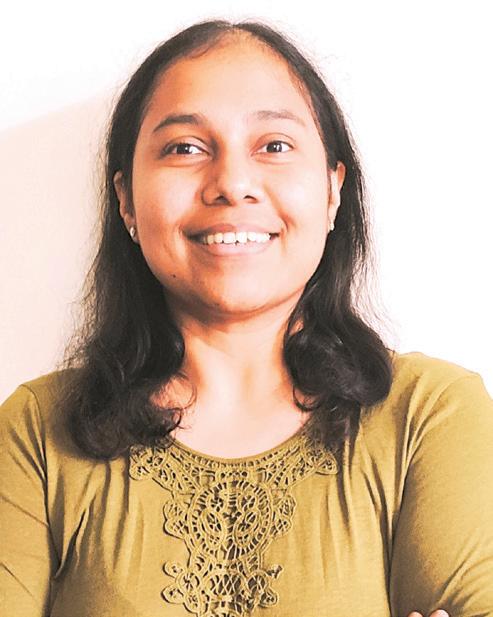
3 minute read
Alumni Profile - Dr. Shalaka Samant
Startup Science: Dr. Shalaka Samant Leads Novel IBS Research at Kiwi Biosciences
BY MICHAEL DHAR
From probing pathogen genes to consulting with research organizations globally, Dr. Shalaka Samant, PhD ’08, has lent her scientific expertise to a range of worthy pursuits. Today, she serves as founding scientist for Kiwi Biosciences, a startup dedicated to easing the lives of those with irritable bowel syndrome (IBS).
Launching in May 2021 as a venture capital–funded startup, Kiwi focuses on cofounder Anjie Liu’s enzyme mix that targets IBS “trigger” foods. The patentpending product, FODZYME, works on molecules (known as fermentable oligosaccharides, disaccharides, monosaccharides, and polyols, or FODMAPs) found in everyday foods like banana and garlic that cause IBS symptoms. When taken with such foods, FODZYME should help dampen such symptoms.
In her core work at Kiwi, Samant seeks to express FODZYME enzymes in host organisms “to make enough of these enzymes on a large scale such that it can be made available to the final consumer” at a reasonable price for everyday use, she said. The novelty of the product means Samant gets to pursue new and groundbreaking science. “There is no precedent for this kind of work,” she said.
Because of that newness, Samant’s work also involves leading clinical trials to establish FODZYME’s safety and efficacy and seeking to expand the product’s efficacy to include polyols. That’s the one FODMAP category not currently targeted by FODZYME.

Dr. Shalaka Samant
To do this new research, Samant operates in a similarly novel way: designing and leading research remotely from her home in India, while contract research organizations (CROs) carry out the lab work. Samant’s experience with CROs began before her time at Kiwi. After postdocs probing the genetic makeup of food-poisoning culprit Campylobacter jejuni at Yale University and studying macrophage development at the University of Texas, Samant joined Indian CRO Anthem Biosciences, deepening her lab experience there for nearly a decade.
In 2019, Samant struck out on her own, founding Biombrella, where she provided consulting services to pharmaceutical and other research organizations.
Samant said the deep research skills and knowledge she gained at UIC helped her succeed in these relatively new entrepreneurial roles. At UIC, Samant investigated anthrax genes in the lab of the late Dr. Alexander Neyfakh. “Dr. Neyfakh was very different in that he encouraged me to take my time to understand these [scientific] principles . . . but at the same time, he also made sure that I think and work in the right direction,” Samant said. “It was an amazing experience.”






